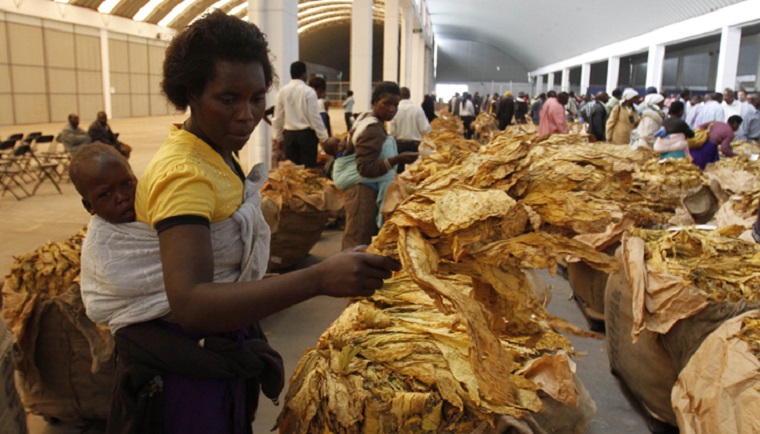by Derick Tsimba
The Reserve Bank of Zimbabwe (RBZ) and the Tobacco Industry and Marketing Board (TIMB) in a joint press statement have allayed fears regarding delays in payments, saying they will implement measures to ensure that tobacco growers are paid timeously for the 2020 tobacco selling season, the Harare Post can report.
“50% foreign currency portion shall be paid directly into the growers’ foreign currency bank accounts (FCAs) and the 50% local currency portion directly into the growers’ local currency bank accounts or e-wallets on the day of the sale.
“Tobacco growers who have contracted loans in foreign currency shall pay the loans in foreign currency and as such upon sale of the tobacco, the foreign currency loans shall be payable and deducted from the proceeds of the tobacco sales and thereafter 50% of the sale proceeds shall be paid in foreign currency and the other 50% will be converted at the applicable exchange rate on the day of sale and paid in local currency,” read the press statement by RBZ and TIMB.
TIMB also said tobacco growers will be required to adhere to the stipulated booking requirements for selling of tobacco at the auction or contract floors and tobacco growers without booking tickets for the day’s sale shall not be permitted to offload their bales at the auction or contract floors.
The Harare Post has learnt that the RBZ will facilitate the adequate preparations and importation of inputs for the next growing season, the foreign currency entitlements for growers shall be treated as free funds and may be retained in their FCAs for an indefinite period. For the avoidance of any doubt, holders of such funds are permitted to conduct inter-FCA transfers or effect foreign payments without any restrictions and the FCA balances will not be subject to any liquidation requirements.
Zimbabwe remains the largest grower of tobacco in Africa and the 6th largest grower in the world. Three types of tobacco are grown namely virginia, burley and oriental tobacco. Tobacco output was 259 million kg in the 2019 season and the 2020 season is expected to record a drop in output due to erratic rains which characterised the 2019/2020 rainy season.




